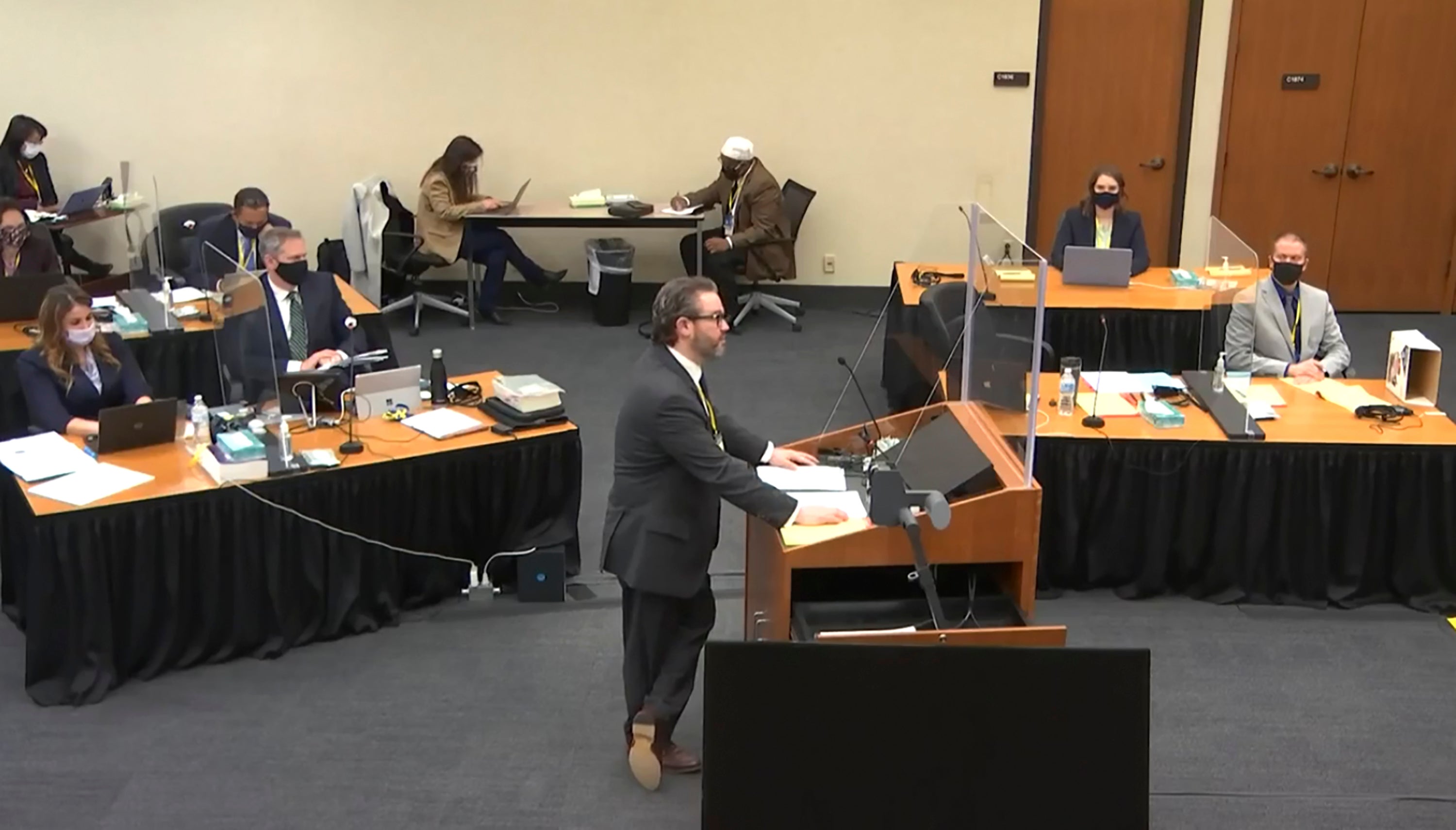EXPLAINER: Role of alternate jurors in ex-officer's trial
Attorneys in the trial of a former Minneapolis police officer charged in George Floyd’s death are wrangling over not just the 12 jurors who will decide the verdict but also two alternates

Your support helps us to tell the story
From reproductive rights to climate change to Big Tech, The Independent is on the ground when the story is developing. Whether it's investigating the financials of Elon Musk's pro-Trump PAC or producing our latest documentary, 'The A Word', which shines a light on the American women fighting for reproductive rights, we know how important it is to parse out the facts from the messaging.
At such a critical moment in US history, we need reporters on the ground. Your donation allows us to keep sending journalists to speak to both sides of the story.
The Independent is trusted by Americans across the entire political spectrum. And unlike many other quality news outlets, we choose not to lock Americans out of our reporting and analysis with paywalls. We believe quality journalism should be available to everyone, paid for by those who can afford it.
Your support makes all the difference.Attorneys in the trial of a former Minneapolis police officer charged in George Floyd’s death are wrangling over not just the 12 jurors who will decide the verdict but also two alternates.
Derek Chauvin s trial is moving forward amid national attention around Floyd's death, plus a pandemic that could potentially disrupt proceedings expected to last several weeks. That's why the two alternates will play important role, ready to sub in for other jurors who are unable to continue with the trial.
Here’s a look at how alternate jurors will work in the trial of the former officer charged with murder and manslaughter:
WHAT ARE ALTERNATE JURORS?
During the criminal trial, alternate jurors will be indistinguishable from their peers. In fact, they won't even know they are alternates. The judge won't reveal who the alternative jurors are until attorneys have finished making their cases. That's so that the alternates don't yawn off during proceedings and are ready to step in if another juror is unable to continue.
The alternate jurors will be the final two selected for the 14-person panel. Opening statements are expected March 29 unless the process isn’t complete by then.
WHY ARE THEY NEEDED?
Alternate jurors will step in if a juror can't continue in the trial for reasons such as illness, a family emergency, or further exposure to information on Floyd's death that would taint their decision.
“In any long trial, there are just things that come up in people’s personal lives,” said Mary Moriarty, a former Hennepin County chief public defender.
But Moriarty said alternate jurors will be even more important in this trial, given the high-profile nature of Floyd's death and the ongoing pandemic.
Even finding 14 people to serve on the jury has been a challenge for such a well-known case. Attorneys have questioned potential jurors about their ability to keep an open mind, how they resolve conflicts, their views on the criminal justice system, and whether they felt safe serving on the jury.
WHAT DO THEY DO DURING JURY DELIBERATIONS?
After attorneys present their arguments, criminal prosecution rules stipulate that alternate jurors “must be discharged” when the jury goes into deliberations. But Minnesota criminal defense attorneys said the judge could make sure that alternates maintain their ability to rejoin the jury if needed.
Joe Friedberg, a defense attorney, said he expected the judge to make the call to sequester alternates during jury deliberations. He said in his experience, alternates are called upon once in every four or five trials.
But Moriarty said the judge could also just instruct alternates to refrain from researching the trial on their own during deliberations, while stopping short of sequestering them with the rest of the jury.
Just six sentences are devoted to alternate jurors in Minnesota’s Rules of Criminal Procedure, the rules that govern how criminal prosecutions work in the state. The rules state that if a juror can't continue during deliberations, a mistrial must be declared unless the parties agree that the jury can proceed with fewer members.
Moriarty said she “could not imagine” a defense attorney agreeing to allow a jury to reach a verdict without the full 12 members.